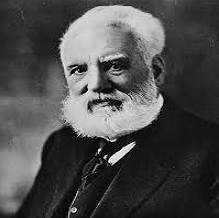Antonie Van Leeuwenhoek Cell Biologist

Biography of Antonie Van Leeuwenhoek
Early Life
Antonie Van Leeuwenhoek was a cell biologist who was born on 24 October, 1632 in Delft which is a city of Netherlands. He was the person who didn’t get any formal education and was self taught. This thing helped him a lot in moving his career further in field of biology because he could think easily and was not bound of any degree.
Achievements
Antonie Van Leeuwenhoek started his career as a salesman of household linen. He used to use some magnifying glasses to observe and check the quality of cloth. After that once he developed his own diamond shaving glasses which he got from a specific shop. This thing arose in his mind he started to develop his own microscope for magnification purposes. This microscope was consisted of a single lens which was placed on a metal plate attached with another metal plate. The lens was fixed in between the both metal plates and when it was used for magnifying, he checked that it could magnify objects up to 300 times.
Contributions
This invention made Antonie Van Leeuwenhoek suddenly very famous because it brought a revolution in many fields of science. In this microscope, any object that he wanted to see was put on a moveable plate and its magnification quality was changed with a screw which was on the backside of that microscope. With these complex and complicated process it was just a simple body hold machine. The size of this microscope was less than 10 cm. After this early invention, he developed many other improved microscopes with greater magnifying power.
Cell Biologist
Antonie Van Leeuwenhoek is said to be the father of microbiology. As we know that biology is a very old field in which we are studying animals and plants from many centuries but the discovery that animals are made up of cells gave it a new dimension. This thing only happened due to invention of Antonie Van Leeuwenhoek. His invention of microscope in 1595 made it possible for scientists to observe cell for the very first time. He was not any special or specific microbiologist but his invention he geared up himself to view unseen world of biology which explored many secrets and became the base of modern microbiology.
Death
In his last days, he said that he is not hungry of fame or money. Instead of it he did so only for his inner strive for knowledge. This great intellectual and father of microbiology died on 16th August, 1723 when he was 90 years old.


A imagem apresentada neste verbete não é de Antonie Van Leeuwenhoek